Author: Greg Bloom
-

Our 2024 Year in Review
In this report, we summarize all of the significant steps forward in the past year, from a new version of our standards, upgrades to our governance model, and breakthroughs in business strategy across the human service informatics sector. Read more here in the report. Continue reading →
-
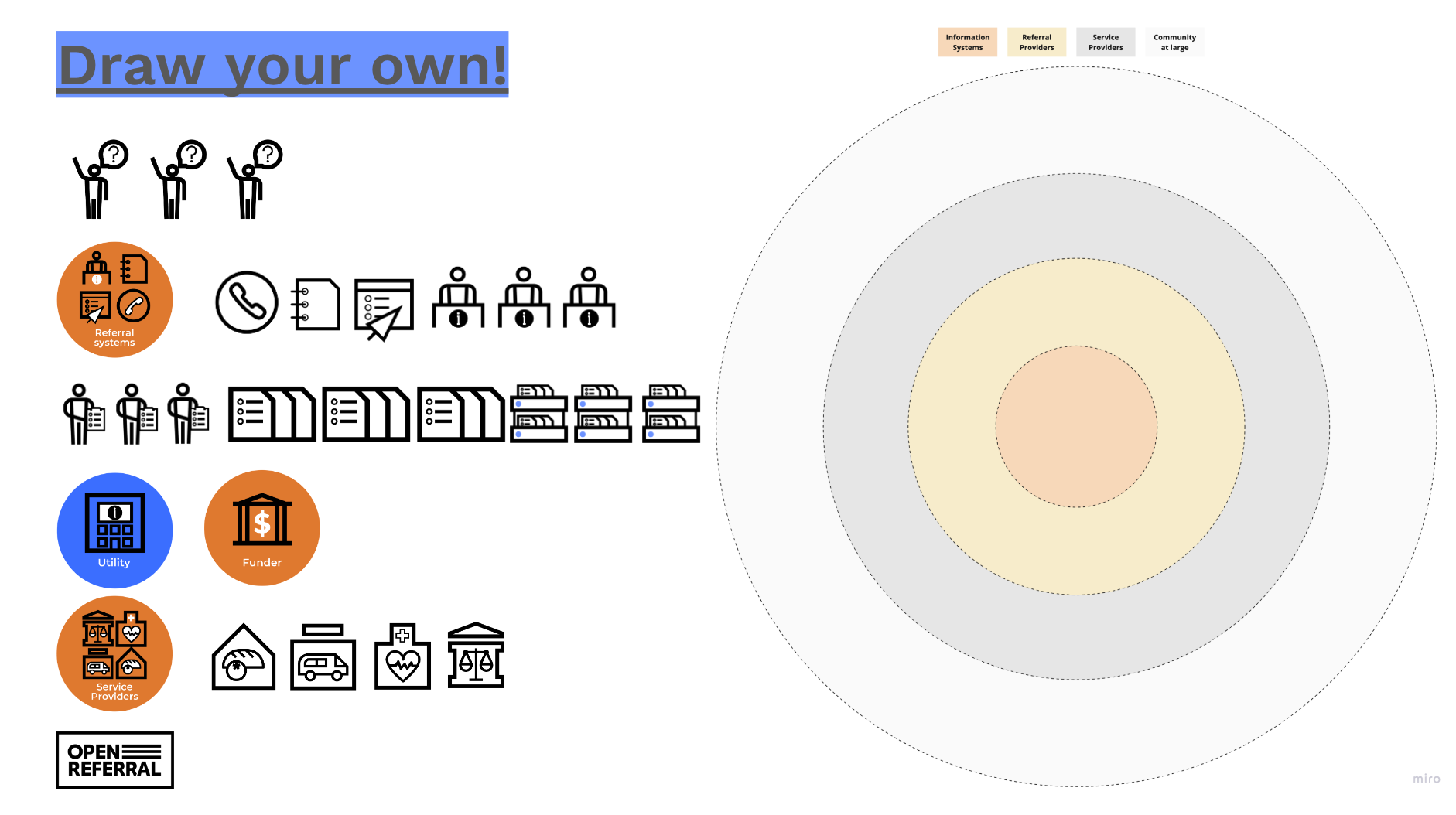
Envisioning cooperative resource directory information infrastructure in Minnesota
Minnesota residents can look for information about a range of human services on MinnesotaHelp.Info®, a resource navigation program supported through partnership among several public entities (including the state’s Department of Human Services and Board on Aging). Minnesotans can also look for information about human services via 2-1-1, which is operated by United Ways of Minnesota…
-

Upgrading our Governance: Introducing the Open Referral Standing Technical Committee
[EDITOR’S NOTE: Open Referral’s new standing technical committee wants to hear from members of our community about your priorities and feedback. Please take a few minutes to complete this survey– your input can help us shape our roadmap for the year … Continue reading →
-
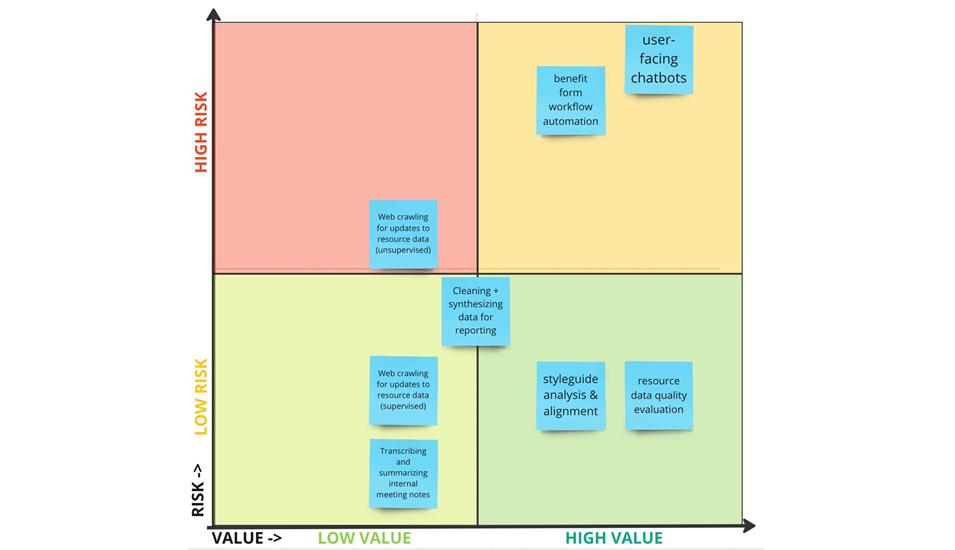
The Risks of AI in I&R Part 2
This is the second post in a series about the Risks and Opportunities of AI in I&R. My first post considered the long, disappointing history of “algorithmic technologies” in human service sectors. In this post, we’ll examine the specific kind of … Continue reading →
-
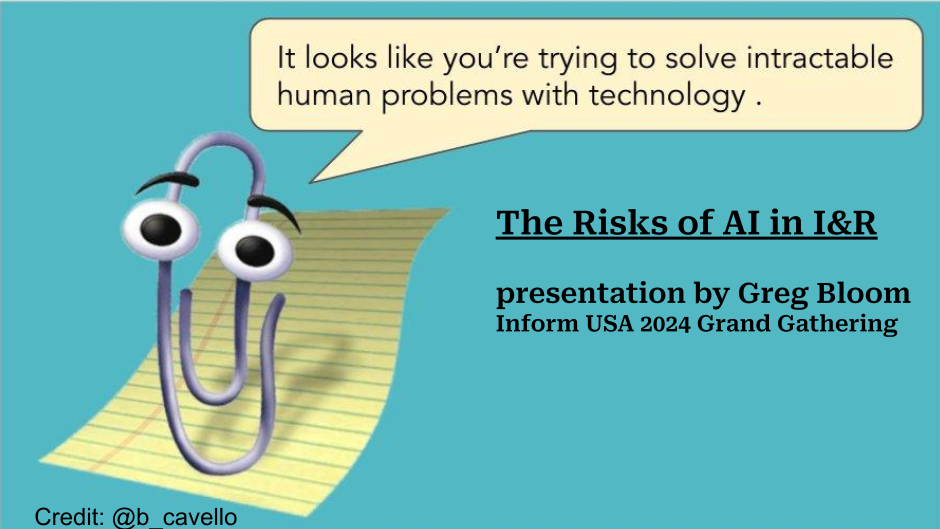
The Risks of AI in I&R – Part 1
Last month I presented at the 2024 Inform USA Grand Gathering in Grand Rapids Michigan, and my session – the Risks of AI in I&R – was probably the most popular I’ve delivered in 10 years of these conferences. So I’ll relay a summary here, in a series of posts. Continue reading →
-
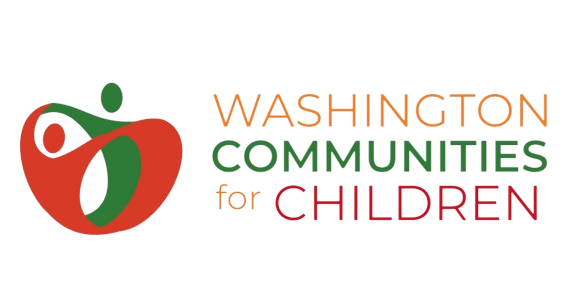
Washington Communities for Children: developing the resource directory information supply chain
Washington Communities for Children (WCFC) is a network of early childhood coalitions – groups of local parents, child care providers, non-profits, public agencies, school districts, etc. – dedicated to improving the wellbeing of children, families, and communities acrossWashington state. In 2022, the Washington State Department of Health enlisted WCFC in its Early Childhood Comprehensive Systems…
-

Our 2023 Year in Review
Open Referral is turning 10 years old! Along the way, we’ve already achieved the first part of our mission: establishing industry standards for resource directory data exchange, to ensure that it’s possible to share, find, and use information about the health, human, and social services available to people in need – regardless of what technology…
-
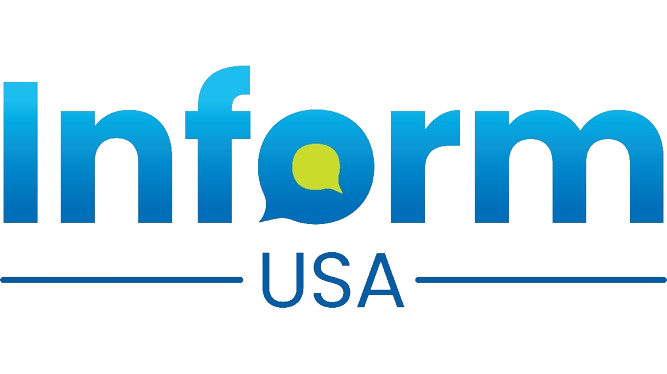
Teaming up with Inform USA: an announcement from Open Referral leadership
I’m excited to share the news that, as of January 1st, I’ve stepped into the role of Senior Director of Strategy and Partnerships for Inform USA. Inform USA is the industry association representing information-and-referral providers across government and nonprofit human service sectors. Formerly known as AIRS (the Alliance of Information and Referral Systems), Inform USA…
-
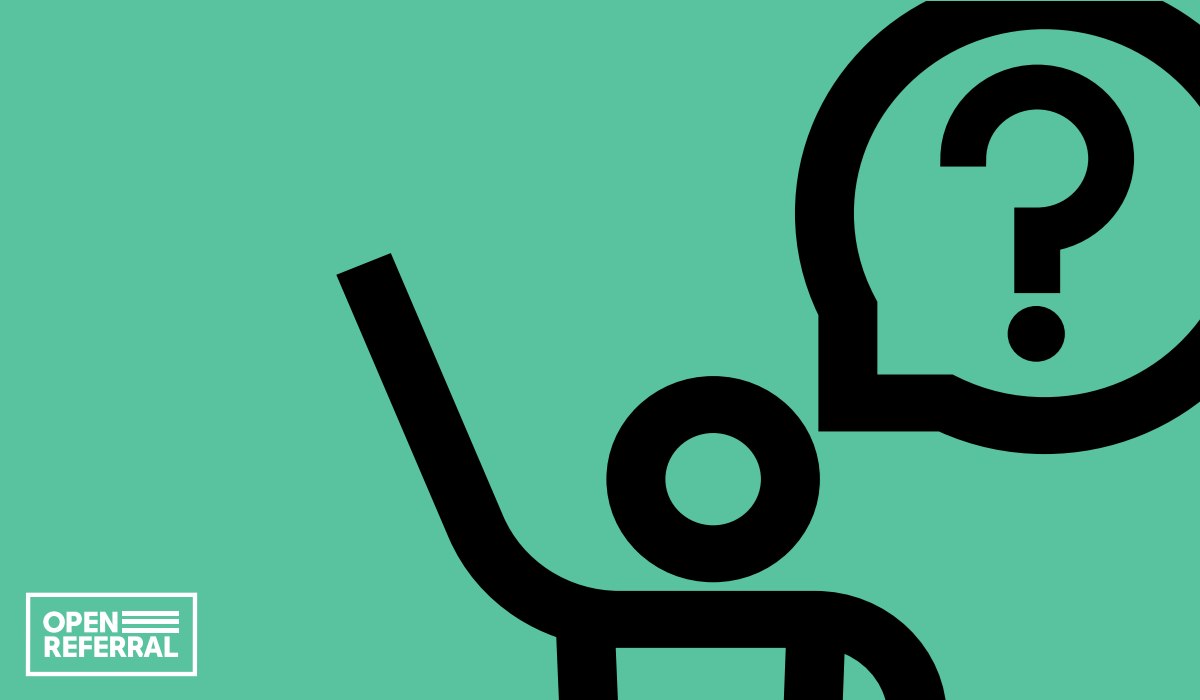
Governing the Resource Directory Data Commons: A Vision and A Call to Action
Open Referral’s mission is to establish resource directory data as a public good – reliably and sustainably made freely available to all. Toward this end, we developed the Human Service Data Specifications – but we also know that solving this problem requires more than just technical interoperability among resource directory information systems. Indeed, success entails…